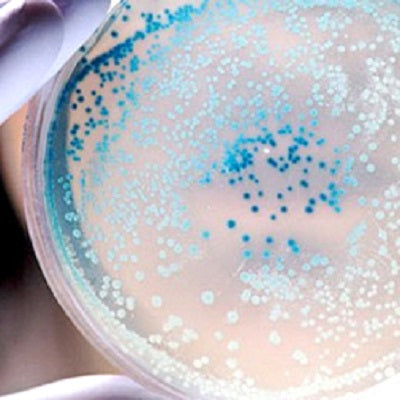
Both milk kefir and water kefir are known for their probiotic prowess. Even though most people agree that milk kefir is the king as far as the number of probiotic strains as well as the amount (CFU), water kefir should not be dismissed either. Water kefir has its own unique range of probiotic strains as well as a respectable CFU count as well.
Belgium studies on CFU
Unfortunately there's not a whole heap of scientific data for water kefir and its CFU. Most the scientific data regarding water kefir and probiotic counts come from a couple researchers in Belgium. They authored several scientific articles on water kefir and its CFU count for both bacteria and yeast[1, 2, 3].
In their largest study[2], they tested 3 different grains from different locations and they all averaged around 10 million CFU/mil for the bacteria probiotic count. That is about 2 to 2.5 billion CFU per cup. By all accounts, that’s significantly less than milk kefir CFU, but still a respectable amount.
The average viable count for the yeast came out to be around 2 to 5 million CFU per mil. Overall, the yeast count was 2-10 times less than the bacteria count.
The grains themselves had a much higher count. The viable count within the grains was about 10 to 30 times more concentrated than in the liquid kefir. If you are looking for a large probiotic boost without the sugar, then eating some of the grains can be a good option.
Germany Study on CFU
Another peak into water kefir CFU comes from a dissertation in Germany[4]. She also tested 3 different types of water kefir grains which ranged from 130 to 160 million cfu/g. That comes to about 35 billion CFU per cup.
That’s more than 10 times the Belgium study.
I like this study as more natural fermentation parameters were used. The study used mineral water; whereas, the Belgium study used distilled water. That alone might have had a large impact as water kefir grains do not like distilled water.
The yeast CFU was also higher than the Belgium study at 6 to 27 million. The ratio of yeast to bacteria is roughly the same though. So for whatever reason, these grains were overall more active.
Bottom line
Currently there’s not that much information on water kefir CFU. Two large studies out of Belgium and Germany indicate that the range might be between 10 million to 160 million cfu/g. So when you drink about a cup, you should be getting at least a billion to maybe 30+ billion cfu.
For comparison, milk kefir most likely has at least 1 billion cfu/g and one study shows the possibility of 250 billion cfu/g. Milk kefir is the powerhouse when it comes to probiotics and CFU, but its good to know that water kefir has respectable numbers as well.
When drinking a cup or 2 a day of water kefir, you would probably get more than most expensive pills. And those pills are no where near as good as a naturally balanced ferment.
References:
[1] https://www.ncbi.nlm.nih.gov/pmc/articles/PMC3993195/
[2] https://www.ncbi.nlm.nih.gov/pubmed/27930854
[3] https://www.ncbi.nlm.nih.gov/pubmed/28070662
[4] https://mediatum.ub.tum.de/1164224


Comments
Tyler
I really wonder what the CFU counts are for the grains themselves. I know that you can eat milk kefir grains and water kefir grains (I’ve eaten both), and I always wonder how the probiotic breakdown would compare to something like a probiotic pill.
July 12, 2021
Christy Paul
fascinated by the facts and i feel bad for people paying a ton to get these probiotic supplements
July 02, 2020
Leave a comment